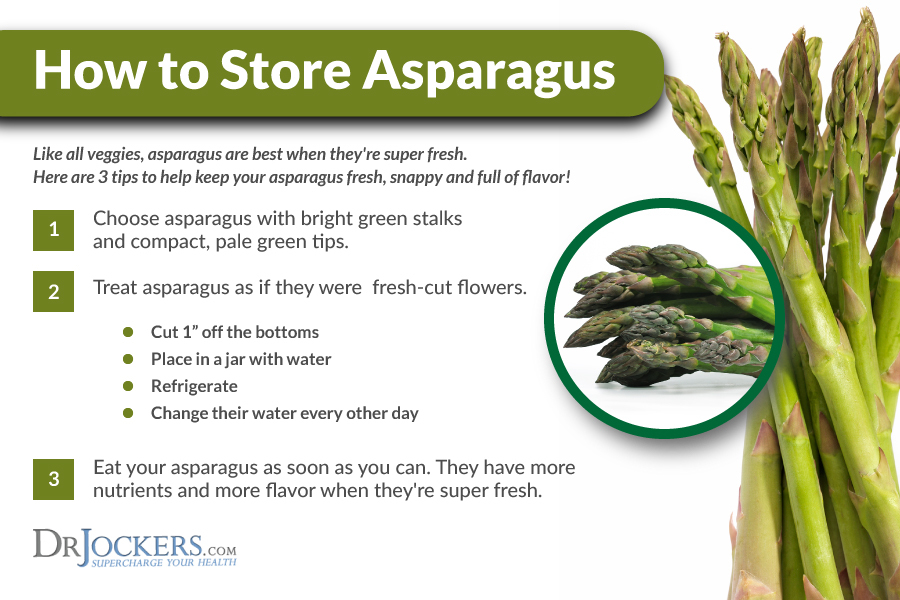Understanding The Health Impacts Of Asparagus Consumption

Table of Contents
Nutritional Powerhouse: The Vitamin and Mineral Riches of Asparagus
Asparagus is packed with essential vitamins and minerals crucial for optimal health. Understanding the asparagus nutrition profile reveals a treasure trove of beneficial compounds. Let's explore the key nutrients and their roles in supporting your well-being:
-
Folate: Asparagus is an excellent source of folate, a B vitamin vital for cell growth and development, particularly important during pregnancy. Adequate folate intake helps prevent neural tube defects and supports healthy red blood cell formation.
-
Vitamin K: Rich in Vitamin K, asparagus plays a crucial role in blood clotting and bone health. Vitamin K is essential for the activation of proteins involved in bone metabolism, contributing to strong and healthy bones.
-
Vitamins A, C, and E: Asparagus contains significant amounts of Vitamins A, C, and E, all potent antioxidants. These vitamins protect your cells from damage caused by free radicals, bolstering your immune system and reducing the risk of chronic diseases.
-
Potassium: A good source of potassium, asparagus contributes to maintaining healthy blood pressure. Potassium helps regulate fluid balance and muscle contractions, essential for overall cardiovascular health.
-
Fiber: Asparagus provides dietary fiber, promoting healthy digestion and regularity. Fiber adds bulk to your stool, preventing constipation and supporting a healthy gut microbiome. The fiber content in asparagus also contributes to feelings of fullness, aiding in weight management.
Antioxidant Properties and Disease Prevention
The antioxidant compounds found in asparagus, such as glutathione, play a vital role in protecting your cells from damage caused by free radicals. These unstable molecules can contribute to aging and the development of chronic diseases. The consumption of asparagus and its rich antioxidant profile offers several potential health benefits:
-
Reduced Inflammation: Asparagus may help reduce inflammation in the body, a key factor in many chronic diseases, including heart disease, cancer, and arthritis. Its anti-inflammatory properties contribute to overall health and well-being.
-
Cancer Prevention: Studies suggest a potential link between asparagus consumption and a decreased risk of certain cancers. The high concentration of antioxidants and other phytochemicals in asparagus may contribute to this protective effect. (Further research is needed to solidify these findings.)
-
Heart Health: Asparagus may contribute to improved heart health by lowering blood pressure and cholesterol levels. Its potassium content and fiber contribute to this cardiovascular benefit. Maintaining healthy blood pressure is crucial for preventing heart disease.
Asparagus and Digestive Health
The fiber content in asparagus is key to its positive impact on digestive health. This fiber acts as a prebiotic, feeding beneficial bacteria in your gut. A healthy gut microbiome is essential for optimal digestion, nutrient absorption, and overall well-being. The prebiotic effects of asparagus can contribute to improved gut health and regularity.
Incorporating Asparagus into Your Diet: Delicious and Easy Ways
Adding asparagus to your diet doesn't require complex culinary skills. This versatile vegetable can be incorporated into a wide range of dishes:
-
Roasting: Roasting asparagus with olive oil and herbs creates a simple yet flavorful side dish.
-
Omelets/Frittatas: Add asparagus to your omelets or frittatas for a nutritious and delicious breakfast or brunch.
-
Stir-fries/Salads: Include asparagus in your stir-fries or salads for a boost of nutrients and flavor.
-
Grilling: Grilling asparagus brings out its natural sweetness, creating a delightful summer side dish.
-
Soups/Sauces: Puree asparagus into soups or sauces for a creamy texture and subtle flavor.
Conclusion
Regular asparagus consumption offers a wealth of health benefits, from its impressive nutritional profile packed with vitamins, minerals, and fiber to its potent antioxidant and anti-inflammatory properties. Incorporating this delicious vegetable into your diet is a simple yet powerful way to support your overall well-being and reduce your risk of chronic diseases. The ease of preparation and versatility of asparagus make it a valuable addition to any healthy eating plan. Discover the delicious and powerful health benefits of incorporating asparagus consumption into your daily routine – your body will thank you!

Featured Posts
-
 Dont Let Outdated Apps Cloud Your Ai Future
Apr 30, 2025
Dont Let Outdated Apps Cloud Your Ai Future
Apr 30, 2025 -
 Alraklyt Yhqq Rqma Qyasya Jdyda Fy Swysra
Apr 30, 2025
Alraklyt Yhqq Rqma Qyasya Jdyda Fy Swysra
Apr 30, 2025 -
 Quan Quan Giai Bong Da Thanh Nien Thanh Pho Hue Lan Thu Vii Thong Tin Chi Tiet
Apr 30, 2025
Quan Quan Giai Bong Da Thanh Nien Thanh Pho Hue Lan Thu Vii Thong Tin Chi Tiet
Apr 30, 2025 -
 Dosarele X Redeschise Noi Informatii Din Galati
Apr 30, 2025
Dosarele X Redeschise Noi Informatii Din Galati
Apr 30, 2025 -
 Police Accountability Review Under Scrutiny Campaigners Concerns
Apr 30, 2025
Police Accountability Review Under Scrutiny Campaigners Concerns
Apr 30, 2025
